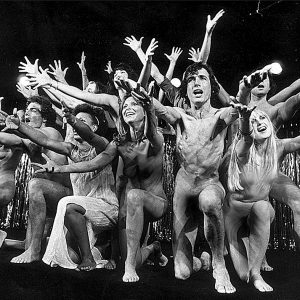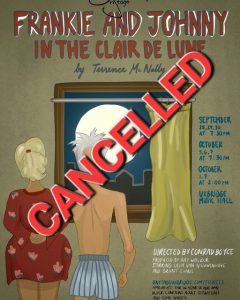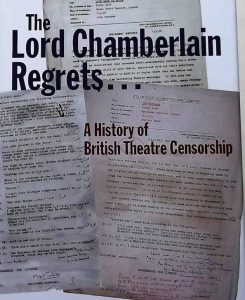
There had been demonstrations against the production in various cities around the world, back in the late 1960s. People were all in flap about the profanity, the references to drugs and promiscuity, the anti-war sentiment, and, oh yes, the nudity.
As the second act of Hair, the American Tribal Love-Rock Musical opened at the Royal Alex Theatre in Toronto, where I saw it in 1970, the stage was covered in a transparent screen. Behind it, those members of the cast who chose to, removed their clothes, stood still facing the audience behind the scrim and chanted together:
“Beads, flowers, freedom and happiness.”
The essence of the scene that nearly had the musical censored in Germany and parts of the U.S., was inspired by two men who’d taken their clothes off during a demonstration by American young people against the war in Vietnam.
In the North American productions (I also saw the Los Angeles production of Hair) the nude scene lasted all of 20 seconds. In Copenhagen, where naked human bodies don’t seem to cause nearly the furor as here, the actors thought the nudity behind the scrim was too tame, so they walked naked up and down the aisle prior to the show.

All this came to mind this week, as I learned that the OnStage Uxbridge production of Frankie and Johnny in the Clair de Lune had been cancelled because, in the words of some members of the 12-person board of directors, “the show contained far more nudity and implied sexual activity than was expected by the warning, ‘brief nudity.’”
Just so you know, and I checked with the show’s director Conrad Boyce, the show has been on the books for over a year. Its two principal performers – Grant Evans and Lisha Van Nieuwenhove (actors and in life husband and wife) – have been memorizing the dialogue and walking through the production for months. They worked with director Boyce and producer Ray Walker to prepare for the show opening last Thursday.
However, last Monday, at a dress rehearsal/preview, some members of the board in attendance changed their minds. Oddly, in their cancellation pronouncement last Thursday, those upset by the nudity claimed that, “our board met with the production team and actors to discuss several options … to better align the production with what was advertised, and with the values of our group and greater community, and the production team decided that the show will not go on.”
I checked with the director, the co-stars and with others who attended the dress/preview last Monday, and that’s not true. The production team wanted the show to open, as planned on Sept. 28 for eight performances. In other words, it was not a unanimous decision as the board’s statement implied. It might help the understanding of the play’s morality, to recall what playwright Terrence McNally said about Frankie and Johnny when he wrote it back in in 1987.

“It’s a romantic fairy tale,” McNally said of the smash-hit play. “I don’t think it helps the actors in my plays to lose themselves in the reality of talking to another person. A good McNally actor always knows he’s in a play with an audience.”
In other words, since the play deals with a realistic struggle between Frankie, a waitress at a café in Manhattan, and the short-order cook, Johnny, during a contemporary encounter between consenting adults, the nudity is not gratuitous. It helps depict the complexities of two people learning about being in love.
And that’s why, from the outset the production has had an age rating of 16+.

By the way, the tradition for allowing censorship of theatrical productions in the English-speaking world goes back to 1737, when the Lord Great Chamberlain’s Office was given authority to “censor parts of a play or forbid performance of a play altogether, if he does not feel the subject matter is appropriate.”
At the time, Shakespearean commentator Edward Capell was appointed as “Examiner of the Stage” to censor “sexually explicit themes, nudity on stage and the use of expletives.” In other words, priviledged people gave other priviledged people the right to play god over theatrical content. Censorship by the Lord Great Chamberlain’s office did not end until passage of the Theatres Act in the U.K. halfway through the 20th century.
It took 231 years, but such nonsense finally came to an end on Sept. 26, 1968, not coincidentally the very day before the aforementioned production of Hair, the American Tribal Love-Rock Musicalopened at the Shaftesbury Theatre in London.
Wake up, OnStage Uxbridge board members. This is 2023, not 1737. It’s time to move on.